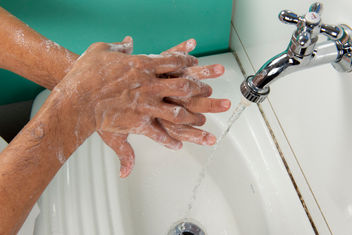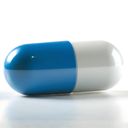How to Properly Wash Your Hands
August 16, 2023In light of recent viral outbreaks impacting most parts of the globe, it is important to focus on simple, preventative measures, such as washing your hands.

The Inside Rx Blog
Get the Inside Scoop on tips & tricks that may help your family save on prescriptions!
Subscribe to stay up to date with the latest news and tips
Washing your hands is one of the most effective ways to protect yourself from getting sick. Learning when and how to properly wash your hands can prevent the spread of germs and keep you healthy.
When to Wash Your Hands
It is very easy to overlook how often you should wash your hands. While washing after using the bathroom is common, it is not the only time a thorough, proper wash is needed. You should also wash your hands whenever you do the following:
- Before/during/after preparing food
- Before eating
- Before and after caring for someone who is sick
- Before and after treating a cut or wound
- After changing diapers or cleaning up a child who has used the toilet
- After blowing your nose, coughing or sneezing
- After touching or cleaning up after an animal
- After handling pet food
- After touching garbage
- After using the bathroom
- Any other time you feel you should need to wash your hands

Vyvanse Coupon Guide 2025: How to Cut Your Prescription Costs

Chronic Kidney Disease: Warning Signs You Shouldn't Ignore

Seasonal Allergies Treatment: Simple Solutions That Bring Real Relief

Lost Your Job? Here's How to Get Prescriptions Without Insurance Today
How to Properly Wash Your Hands
To ensure your hand washing is effective, there are five steps that should be followed every time you wash:
- Wet your hands with clean, running water. Water can be warm or cold.
- Apply soap and lather your hands by rubbing them together. Be sure to get the front and back of your hand, as well as in between your fingers and under your nails.
- Scrub your hands for at least 20 seconds. Singing the “Happy Birthday” song twice is roughly 20 seconds.
- Rinse your hands with clean, running water
- Dry your hands using a clean towel or by air drying.
Gabapentin
$ 7.76Lisinopril
$ 8.06Other Preventative Measures
In addition to washing your hands, there are a number of ways to reduce the spread of germs and prevent illness. Always cover your mouth when sneezing or coughing, stay away from others who are sick or who may be sick and avoid touching your face or mouth. When you cannot access soap and water to wash your hands during the mentioned necessary times, you can also use hand sanitizer that contains at least 60% alcohol. While hand sanitizer is not a replacement for handwashing, it will help eliminate germs until you can wash your hands properly.
Keep you and your family healthy and help prevent the spread of germs by keeping your hands clean. Talk to your doctor or medical professional if you have any questions.For more information on washing your hands or any additional resources, check the Center for Disease Control’s website.